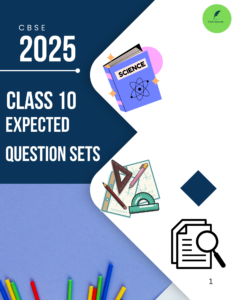
The landscape of education is evolving, and the Central Board of Secondary Education (CBSE) is at the forefront of this change with its latest Assessment and Evaluation Guidelines for the year 2023. In this blog post, we delve into the key highlights of these guidelines, uncovering their impact on teachers and students alike.
Understanding the Basics: The CBSE’s Assessment and Evaluation Guidelines for 2023 mark a significant shift in how students’ progress is measured. Designed to foster holistic learning, these guidelines emphasize a more comprehensive approach to assessment, moving beyond mere rote memorization and encouraging a deeper understanding of subjects.
Click Here to Purchase the last 10 years’ solved question Papers of class 10 CBSE
Key Highlights of the Guidelines:
- Reduced Focus on Rote Learning: The guidelines discourage rote learning and instead promote critical thinking and analytical skills. Teachers are encouraged to design assessments that evaluate students’ problem-solving abilities and application of concepts.
- Assessment of Life Skills: CBSE’s new approach includes assessing essential life skills such as communication, teamwork, and creativity. Teachers are now empowered to incorporate activities that nurture these skills within the curriculum.
- Formative and Summative Assessments: The guidelines emphasize a balanced blend of formative and summative assessments. This approach provides regular feedback to students while also measuring their overall understanding of the subject.
- Experiential Learning: CBSE recognizes the importance of experiential learning. Teachers are encouraged to integrate practical activities, projects, and experiments into assessments, making learning a hands-on and engaging experience.
- Individualized Assessment: The guidelines advocate for recognizing each student’s unique strengths and weaknesses. Teachers are prompted to use varied assessment methods to cater to diverse learning styles.
- Technology Integration: CBSE encourages the use of technology in assessments, allowing students to showcase their understanding through multimedia presentations, online quizzes, and digital portfolios.
Impact on Teachers: These new guidelines usher in a fresh paradigm for educators. Teachers now have the opportunity to design assessments that go beyond textbooks, fostering a deeper understanding of subjects. They can create innovative activities, interactive projects, and group discussions to evaluate students’ knowledge and skills. This shift challenges teachers to think creatively and adapt their teaching methodologies to align with the evolving educational landscape.
Conclusion: The CBSE’s New Assessment and Evaluation Guidelines for 2023 are a step towards a more holistic and student-centric education system. By prioritizing critical thinking, life skills, and experiential learning, these guidelines empower teachers to create enriching classroom experiences that prepare students for the challenges of the real world. As educators, embracing these changes offers a chance to inspire a generation of learners who are not just well-versed in subjects, but also equipped with the skills to excel in an ever-changing global landscape.




Definitely a progressive and a dynamic way to assess the students at micro level,so that the modes of the subject relay, can be made as per the individual requirements of students, by the teachers.
Hello teachgyan.com webmaster, Thanks for the well-presented post!